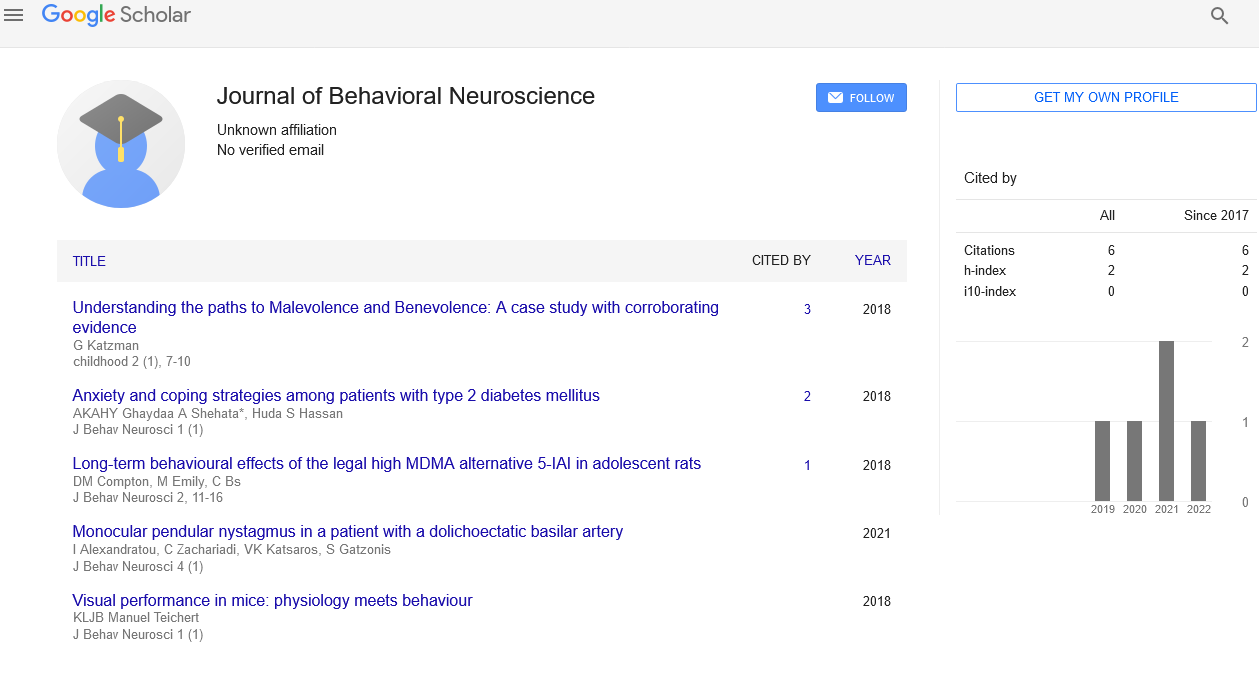Mental illness is a medical ailment: An analysis of its implications for patient care and society
Received: 08-Jul-2021 Accepted Date: Jul 16, 2021; Published: 22-Jul-2021
Citation: Tripathi P. Mental illness is a medical ailment: An analysis of its implications for patient care and society. J Behav Neurosci Res.2021;4(4):17.
This open-access article is distributed under the terms of the Creative Commons Attribution Non-Commercial License (CC BY-NC) (http://creativecommons.org/licenses/by-nc/4.0/), which permits reuse, distribution and reproduction of the article, provided that the original work is properly cited and the reuse is restricted to noncommercial purposes. For commercial reuse, contact reprints@pulsus.com
Editorial
Everyone feels anxious or down from time to time. But few people suffer from mental illness. Mental illness is a condition of mind that enters the thinking, interactions with others, and daily activities. Numerous psychiatric disorders have been identified and described. It includes depression, general anxiety, bipolar disorder, hyperactivity disorder, post-traumatic stress disorder, schizophrenia, and many more. Mental illness is an equal opportunity problem. It affects young and old, men and women, as well as people of all races, ethnic backgrounds, levels of education, and income levels. The good news is that it can be treated often. The signs and symptoms of mental illness depend on the severity of the illness. Common symptoms include temporary low mood swings, withdrawal from family, friends, or work, low energy or sleep problems, frequent feelings of anger, hatred, or violence, feeling disturbed, hearing voices, or having thoughts, often thinking of death or suicide. For some people, the symptoms of mental illness first appear as physical problems such as abdominal pain, back pain, or insomnia. People with mental illness can reduce their symptoms and feel better by talking to a therapist and following a treatment plan that may or may not include medication. The statement mental illness is the same as any other medical condition. It states that mental illness is as natural as any other medical condition and should be treated in the public eye in the same way. The purpose of this article is not to introduce a philosophical or ideological argument that favors or contradicts the natural foundation that defines mental illness, but rather explores the clinical and social benefits of introducing a superior neurobiological model of mental illness to patients, their families, and society as a whole. Mental disorders, on the other hand, affect the very essence of humanity through a range of experiences and various difficulties that change a person’s thinking, understanding, and knowledge of himself, others, and the world. This is manifested in the extreme cases of more serious mental illnesses, such as mental illness and bipolar disorder, but to a lesser extent important in anxiety, emotions, diet, and other mental illnesses. Emotions, perceptions, thoughts, and actions are the essence of personality and sense of identity and these are the main domains transformed into mental disorders. Advances in neuroscience have provided us with the best mechanical interpretations of the many different functions of the cognitive, emotional, and cognitive functions, such as memory, thinking, vision, emotion, and performance. This evidence has informed us that many mental illnesses find their vulnerability to evolutionary change. However, we can no longer describe in many neurobiological terms the behaviors and experiences that are the main manifestations of psychiatric disorders. Although neurobiology may one day provide better explanations for brain function, explain more about the role of genes in increasing the risk of mental illness and the processes behind complex human behavior, one will still need to understand the experiences of four different types of mental illness in terms of psychiatry.





